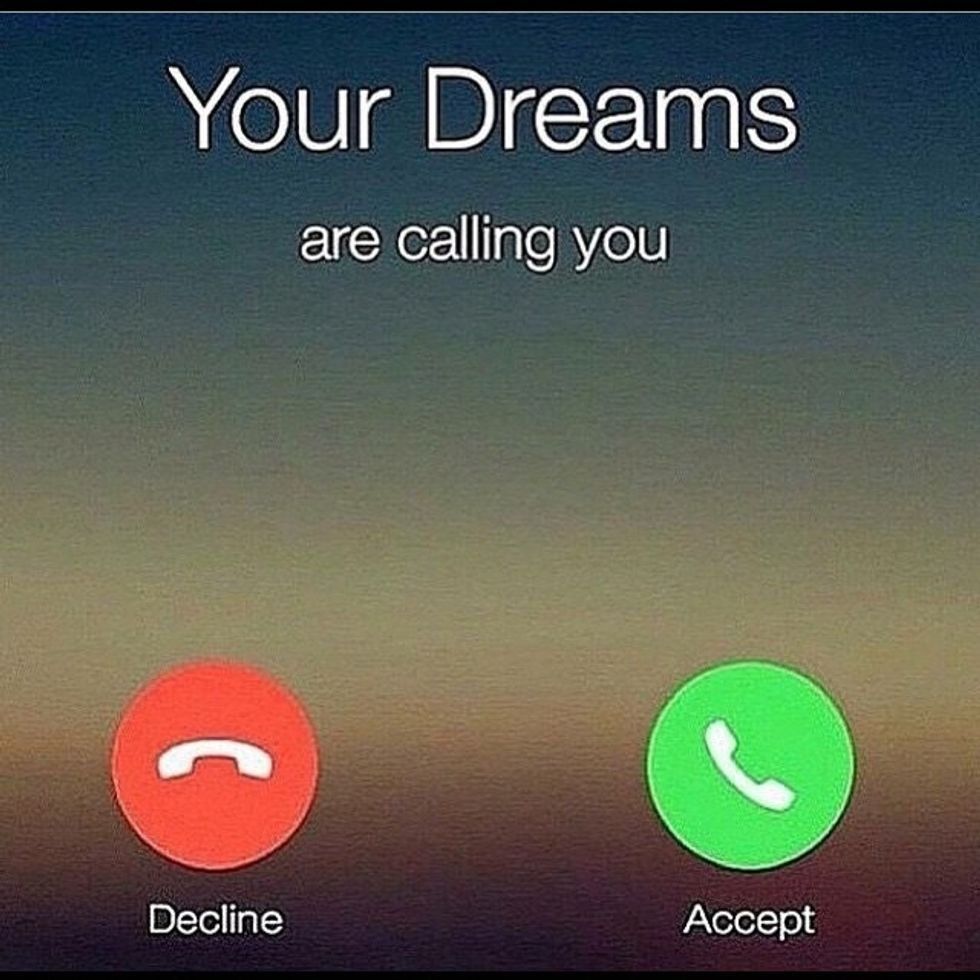When someone says they are (or were) homeschooled, what comes to mind? Do you picture a sheltered, socially awkward genius? Maybe you think that person is dumber than most because they got their education at home. Some people even jump to the conclusion that their homeschooled friend is a Christian, because "that's mostly why people are homeschooled." Allow me to help paint a more accurate picture of what homeschoolers are actually like, and debunk the myths.
Myth #1: Homeschoolers all have religious views and hate public school science classes.
This is where we talk about secular versus non-secular homeschooling. It's true that some people decide to take their children out of public school because they don't believe that public education should take a solid stance on how the world came to be (a.k.a. teaching evolution as a fact). It's also true that some religious families still let their kids go to public school or put their kids in private school. However, there are MANY homeschoolers who are secular.
The definition of secular is "attitudes, activities, or other things that have no religious or spiritual basis." So basically, secular homeschoolers are people who don't tailor how they educate based on religious principles. According to a study conducted by Deseret News, only 16 percent of new age homeschoolers in the United States listed religious instruction as the most important reason they homeschool.
Photo via Bonnint
The now highest reason for homeschooling is coming from a concern of environment in public school, which (in my opinion) is a very valid reason nowadays to not want your kid at your local middle school (have you been to middle school? Then you get why you wouldn't want your child there).
Myth #2: Homeschooled children are socially awkward.
Dear friends who claim all Homeschoolers can't socialize,
Can you please explain to me why you have public school children who can't hold a conversation to save their life? Thanks.
That was a little snarky of me, but you get the point. Public school is claimed to be the only (or at least most effective) way to socialize with people your age and learn good communication skills. Many people believe that isolating your child in their home puts them behind and leaves them unable to be social with friends and other children. The defense sounds pretty strong until you actually think about it. School consists of children sitting in desks with restricted movement and minimal talking for on average 6.64 hours a day, five days a week, for an average 180 days every year. From ages five to 18, your life is one big restriction. Most "socialization" in schools goes on during the lunch hour, before and after school, and during class as a distraction to the schoolwork they're supposed to be doing.
Homeschoolers do not simply hide in their houses until they turn 18 years old. There are countless homeschool academies where children can take a class or two together (sometimes these are taught by parents, sometimes hired teachers). There are also co-ops where homeschoolers either learn about a subject as a group or just hang out, and online forums for homeschool parents to meet and set up play dates. With the amount of technology available to families nowadays, it's very hard to not be social. Not to mention, you're working on a schedule that actually can bend without disrupting the curriculum you choose for your child. Maybe you want to take a field trip to Washington, D.C., with your kid and a homeschool group on Wednesday at 1 p.m. Well... you are the principal. You can do what you please. This wont set you back for SOL testing (which is something you don't have to do necessarily), or add an extra day to the school year. No absences will be counted against you either. You're learning, but in a non-traditional environment. Sounds to me like homeschoolers have a lot more opportunities to socialize with lots of different kinds of people than the average public school kid would.

Myth #3: Barely anyone homeschools anymore.

You were saying?
Myth #4: Homeschoolers don't get to do extracurricular activities (drama club, sports, prom, etc.)
Fun fact: there are plenty of programs available to kids outside of school. Your local ice rink probably has lessons on the weekends, or maybe the pottery store down the block has classes after school. Those are our extra-curricular activities, and some of them are even tailored just for us! There are lots of clubs and programs made just for homeschool children. In fact, there are even sports leagues for homeschoolers (and yes, they do play public school teams as well). In a way, this puts less limits on children. For instance, my high school did not have the funds to keep its arts program going. As a homeschooler, the options are endless! If I wanted to learn underwater basket weaving, I probably could have! One quick search with Google and you'll probably find your dream class happens to be not 15 minutes away from you.
Public school kids have a limited amount of time in the day to do these extra activities, get their homework done, eat and maybe sleep. Homeschoolers, however, are able to make that 2 p.m. class on Mondays and Wednesdays because their schedules are much more flexible, and made for their needs and desires.
P.S. We have our own prom! It's area-wide, and it's just like any other prom would be. Not to mention, freshmen can usually go, too!
Myth #5: Homeschoolers don't get a quality education.
There's a big argument going around about whether parents are even qualified to teach their kids at home, since not all parents went to college and got a masters degree in teaching. Can someone who just has a high school degree actually give their children a quality education? YES! Here's why.
Many teachers in public school complain that most, if not all, they teach is straight from the SOL-geared curriculum. Meaning most of what they teach is not actually from them; it's the curriculum. Why couldn't a homeschool mom just buy that curriculum and use it at home? A lot of books now have guides for teachers who are just starting to teach, showing them techniques for helping kids learn, and also giving background information on the topic should the teacher need to answer questions. It's not hard to get a curriculum at all.
Not to mention, not all of your teachers necessarily got a masters degree in teaching, either. Some may have only gotten their bachelors degree, and maybe not even in the subject they're teaching you!
Photo via NCES
Some teachers end up with classes that are slightly out of their field, or maybe in their minor, but that doesn't make them any less of a teacher. Moms and dads can do this, too! And if they feel like they can't personally, there's always online classes and homeschool academies where children can sign up for classes that perhaps the parents don't feel strong enough in. The education is high quality, just like you'd get at your public or private school. And you know the teacher has your absolute best interest in mind, because they're your parents!
Myth #6: Homeschoolers think they're superior to us public and private-schoolers, and that's annoying.
I'm a homeschooler gone public-schooler, and this comment has always stung a lot. When your parents put you in your public/private school, didn't they think that was the best decision for you? Yes!
Don't homeschoolers think they're making the best decision for their child? Yes!
This is something that public-schoolers and homeschoolers need to work on; the idea that one way to educate a child is better than another. While I believe homeschooling was great for me as a child, I thought being in public school would be better as I hit high school age. That doesn't mean I think one or another is better for the masses, it just means that that's what I thought worked best for me, myself and I. Not everyone is successful in the homeschool environment, just like not everyone is happy in public or private school. This isn't a competition -- it's about educating children in the best way possible for that individual child.
In the end, everyone thinks they are right, everyone learns differently, and remembering that it's okay to have differences will stop this misinterpretation of superiority. Wouldn't you be more worried if your friend who homeschools their kid thought this would destroy their child's education and happiness? I would be.
The problem with homeschooling is there is not a very concrete way to define it other than you learn at home. That's it. Everything else that you see in a homeschooler varies between people and families. Some people homeschool at home while others enroll in a few classes at homeschool academies (yes, they're a thing). Some people are secular homeschoolers while others are religious. Some people are taught for eight hours a day just like your typical public school child while others have abandoned a schedule altogether. It all depends! That's the beauty of homeschooling; you can tailor the curriculum to the needs of the child. Now you know that we're all different, we're not judging you if you don't homeschool, and that in the end we all just want to make learning a fun and valuable thing in America again.










 Photo by
Photo by 









